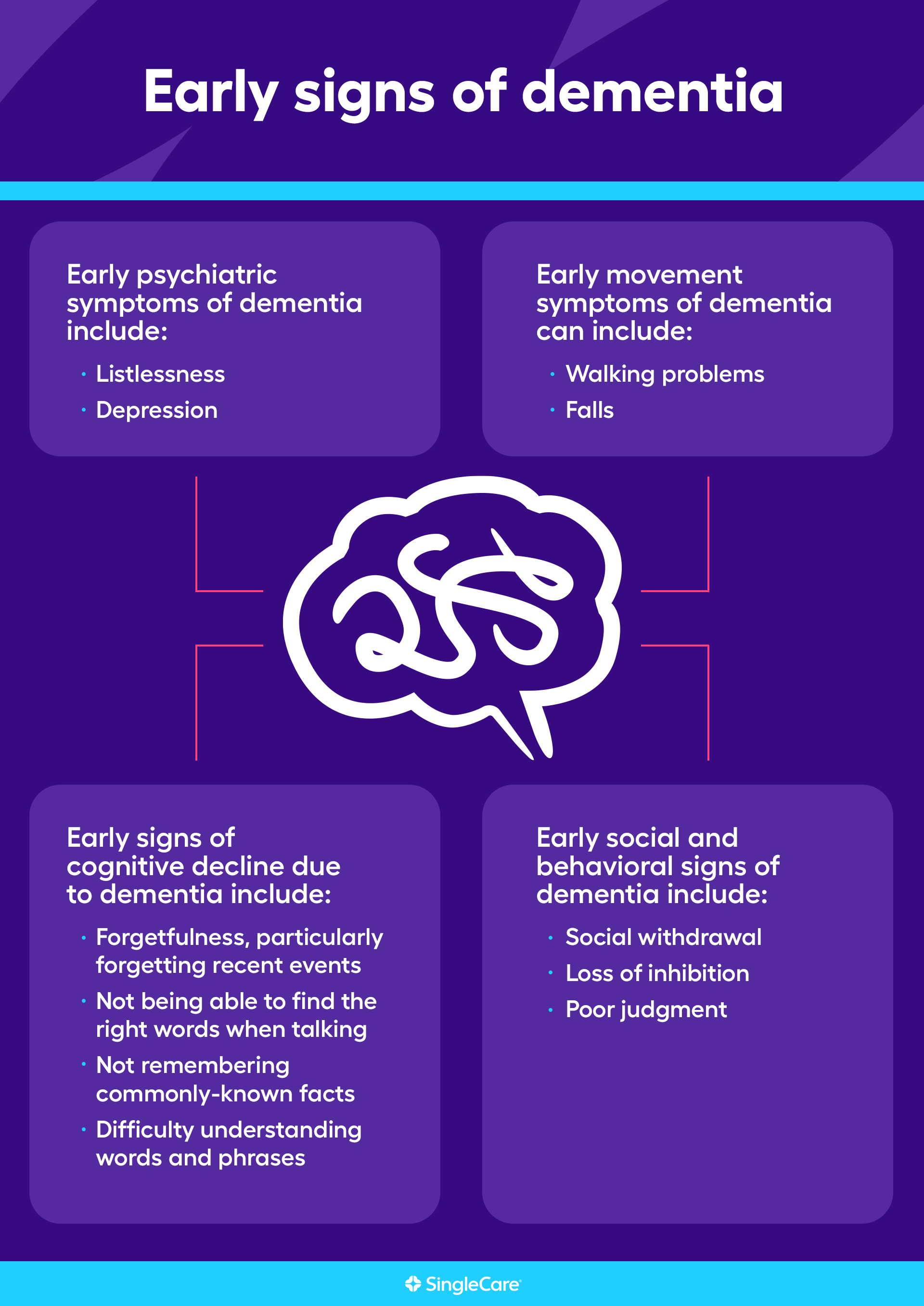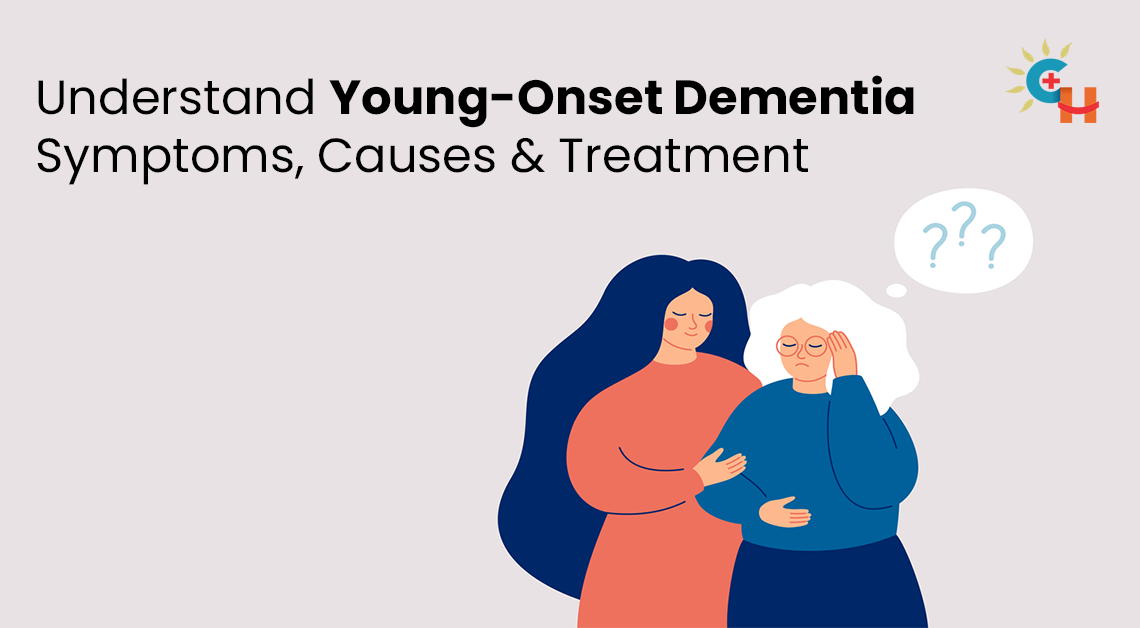Emotional and Behavioral Changes in Frontotemporal Dementia Patients
Emotional and Behavioral Changes in Frontotemporal Dementia Patients
Blog Article
Understanding the Impact of Mental Deterioration on Day-to-day Live and Caregiving
Dementia affects life in profound methods, influencing not just those identified but likewise their caretakers. As cognitive decline progresses, you may discover modifications in communication and regular that obstacle both parties. Understanding these shifts is essential for maintaining self-respect and engagement. However just how do you adjust your caregiving strategies to support someone traversing this complex trip? The responses may shock you as we discover the subtleties of this experience.
The Stages of Mental Deterioration and Their Impacts on Life
As you navigate the journey of mental deterioration, comprehending its phases can markedly impact exactly how you handle every day life. Mental deterioration typically advances through 3 main stages: early, center, and late. In the beginning, you could observe periodic memory gaps or problem locating the ideal words. This can cause frustration, but recognizing these signs early aids you adjust your routine and look for assistance.
During the center stage, you'll experience much more recognizable cognitive decrease. Daily jobs might end up being tough, and preserving your self-reliance may require changes. Making use of tips and simplifying your atmosphere can assist.
In the late phase, individuals commonly need significant assistance with daily activities. Preparation for care ends up being necessary, concentrating on comfort and high quality of life. By understanding these stages, you're far better outfitted to respond proactively, ensuring you or your liked one can browse the obstacles with dignity and grace.

Changes in Interaction and Social Communication
How do modifications in interaction affect your day-to-day communications as dementia proceeds? As dementia developments, you might discover that simple conversations come to be challenging.
You might locate it much easier to attach through these methods as opposed to depending entirely on spoken language. Listening abilities can likewise transform; you may locate it harder to bear in mind or comply with discussions what was simply claimed (Vascular Dementia). This can result in misconceptions or feelings of seclusion
Encouraging perseverance and developing a helpful atmosphere can aid. Taking part in tasks that promote connection, like songs or art, can enhance social communications. Remember, keeping relationships is still feasible; it's practically adapting to brand-new ways of connecting.
Impact on Daily Routines and Activities
While navigating daily routines, you'll likely observe that jobs you when completed easily ended up being a lot more challenging as dementia progresses. Basic tasks like food preparation, dressing, or even bathing may need even more effort and time. You might find yourself neglecting actions in familiar regimens or having a hard time to remember where you put items. This can cause irritation not just for you, however likewise for those around you.
Preparation your day can feel frustrating, making it tougher to stick to a timetable. You may need suggestions for appointments or to take medicines. Adapting your setting can aid; for example, labeling products or making use of checklists can streamline jobs. Involving in repeated, organized tasks can likewise give convenience and a feeling of achievement. Remember, it's alright to request assistance. Bordering yourself with helpful good friends or household can make taking care of these adjustments a bit easier.
Behavioral and psychological Challenges
Guiding with day-to-day regimens can bring about not just useful difficulties, however behavior and also psychological ones. You might observe adjustments in state of mind, such as enhanced anxiety or aggravation, which can originate from complication or trouble in completing tasks. As you navigate these moments, it is important to identify that your loved one might reveal their sensations with habits like frustration or withdrawal.
These emotional feedbacks can be unpredictable and may emerge without warning, leaving you both sensation bewildered. You might discover that acquainted settings or routines can help in reducing anxiety, however keeping patience ends up being substantial. It is very important to confirm their sensations, even if you don't fully recognize them.
The Function of Caregivers in Supporting People With Mental Deterioration
As a caretaker, you play an essential role in offering psychological assistance for individuals with mental deterioration. Developing daily care routines can create a feeling of stability and convenience, helping to ease their stress and anxiety. By comprehending their demands and making use of reliable approaches, you can considerably boost their quality of life.
Psychological Assistance Strategies
When caring for someone with dementia, understanding the psychological landscape is vital for supplying efficient support. You'll typically discover that persistence and empathy go a lengthy way. Validate their feelings; if they share complication or frustration, acknowledge it without dismissing their feelings. Basic gestures, like holding their hand or keeping eye get in touch with, can produce a feeling of protection. Attempt to participate in activities that they enjoy, as this can trigger delight and connection. Bear in mind to connect clearly and slowly, using a tranquil tone. Motivate expression through songs or art, which can work as a powerful electrical outlet. Eventually, don't forget to deal with your very own emotional demands; seeking support for on your own visit this website can boost your capability to care for them.
Daily Care Routines
Developing daily treatment regimens is necessary for offering security and convenience to people with mental deterioration, as these routines can help in reducing complication and anxiety. You can start by laying out a constant timetable for dishes, activities, and rest. This predictability aids your loved one feel a lot more safe and engaged.
Integrate acquainted jobs, like folding washing or watering plants, which can evoke positive memories and promote a feeling of achievement. Usage visual cues, such as checklists or calendars, to assist them with the day.
Be adaptable, though; adapt routines as needed based on their state of mind or power degrees. Vascular Dementia. Keep in mind, your perseverance and understanding are essential in maneuvering their changing requirements, guaranteeing they really feel sustained and valued throughout their day-to-day life
Developing a Safe and Comfy Living Environment
Developing a comfortable and safe living atmosphere is crucial for people with mental deterioration. You'll wish to make home safety modifications that decrease dangers and ensure experience to offer a sense of comfort. By focusing on these aspects, you can help create a space that sustains both safety and security and health.
Home Safety And Security Alterations
As you browse the difficulties of dementia, making home security adjustments can considerably boost convenience and protection. Beginning by eliminating tripping dangers like rugs and clutter, guaranteeing sidewalks are clear. Mount grab bars in shower rooms and non-slip mats in the shower to stop falls. Consider making use of brighter lights and evening lights to enhance visibility, especially throughout nighttime. Tag vital locations, such as the washroom and kitchen area, with clear indications to aid with orientation. Secure any sharp things or Visit Website poisonous materials unreachable. Furthermore, evaluate your home's alarms and locks to confirm they're user-friendly and supply comfort. These adjustments not only promote security but also motivate self-reliance, enabling your loved one to feel more comfortable in their atmosphere.
Comfort and Experience
After making sure a safe atmosphere with required alterations, fostering convenience and experience is important for people with dementia. Begin by personalizing their space. Use acquainted shades, decorations, and photos that stimulate happy memories. A preferred covering or chair can offer a feeling of safety. Maintain a regular routine to aid them really feel grounded and lower anxiousness. Easy, acquainted meals can likewise produce a calming environment. Keep pathways clutter-free and clear to stay clear of complication. Include soft lights, as intense lights can be disorienting. Take into consideration adding relaxing scents, like lavender, to promote relaxation. Engaging in acquainted tasks, such as paying attention to songs or gardening, can improve their sense of belonging, making their living environment a true refuge.
Approaches for Reliable Caregiving and Assistance
While navigating the difficulties of mental deterioration treatment can feel overwhelming, carrying out reliable strategies can significantly boost both the caregiver's and the patient's daily experience. Beginning by developing a regimen; predictability helps in reducing anxiousness for both you and your enjoyed one. Usage clear, straightforward interaction-- short sentences and straight questions can stop confusion.

Don't fail to remember to look find after on your own; routine breaks and link with support teams. Sharing experiences with others in comparable circumstances can offer important insights and psychological alleviation.
Finally, remain person and adaptable. Dementia can bring unpredictable changes, so adjusting your technique is essential. By employing these strategies, you can cultivate an extra positive environment that profits both you and your enjoyed one.
Regularly Asked Concerns

What Are the Various Kinds Of Mental Deterioration?
You'll find several types of dementia, including Alzheimer's, vascular mental deterioration, Lewy body dementia, and frontotemporal mental deterioration. Each type impacts memory and cognitive function in a different way, so recognizing the differences is essential for correct medical diagnosis and treatment.
Exactly How Can I Assist Someone With Early-Stage Dementia?
You can help a person with early-stage mental deterioration by being person, using assistance, and motivating them to engage in tasks they appreciate. Maintaining regimens constant and maintaining open interaction can additionally make a substantial difference in their daily life.
Exist Financial Resources Available for Mental Deterioration Care?
Yes, there are financial sources readily available for dementia care. You can discover entitlement program programs, nonprofit organizations, and insurance policy alternatives. It's likewise important to speak with local firms for details resources tailored to your scenario.
What Legal Considerations Should Caregivers Know?
As a caretaker, you must think about power of attorney, medical care proxies, and guardianship legislations. It's vital to understand the lawful civil liberties and obligations you hold, ensuring your enjoyed one receives appropriate treatment and defense.
Just How Can I Manage Caregiver Stress?
You can deal with caregiver anxiety by focusing on self-care, looking for assistance from groups or friends, establishing practical expectations, taking breaks, and exercising leisure methods. Remember, your well-being matters equally as much as the individual you're looking after.
Recognizing the Impact of Mental Deterioration on Daily Life and Caregiving.
As you browse the trip of dementia, recognizing its stages can significantly impact exactly how you manage everyday life.While maneuvering day-to-day routines, you'll likely see that tasks you when completed effortlessly ended up being extra tough as dementia progresses.Establishing everyday treatment routines is necessary for providing stability and convenience to people with dementia, as these routines can assist lower complication and anxiety.While navigating the obstacles of mental deterioration care can feel frustrating, applying efficient techniques can substantially improve both the caregiver's and the individual's day-to-day experience.
Report this page